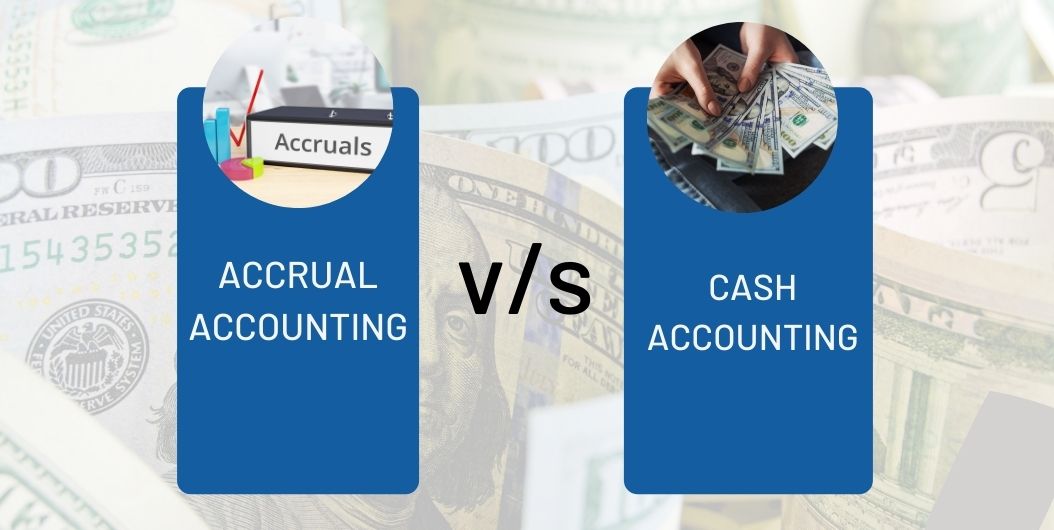Accrual Vs Cash Basis Accounting Explained
Every business or company needs to record their sale and purchase transactions and need a suitable method to track those transactions, which may be cash or accrual methods of accounting. The major difference between cash and accrual basis of accounting is the time period when those transactions are recorded in the journal or accounts. The cash basis of accounting is usually recorded when a company receives cash from its debtors or customers or spends or incur expenses to its suppliers or creditors. That means when a transaction usually takes place in cash, that transaction is recorded through the cash basis of accounting. While the case is opposite in the accrual basis of accounting, these transactions are recorded when the income is earned or generated and when the expenditure is incurred. We’ll go through both approaches in-depth in this blog and how they might affect your business.
Cash Basis Of Accounting
The most simple and easy way to record the transactions is the cash basis of accounting. As the name says, all the transactions are usually recorded when the cash is spent and earned. Almost all the small and local businesses opt for a cash basis of accounting as it is uncomplicated to record and maintain transactions through this method. The method is also beneficial in determining how much cash a business has spent and earned at a particular point in time. Also, until and unless cash is deposited into your bank account, the business income isn’t taxed. One of the drawbacks the method inherits is the difficulty of recording the actual time when the transaction was made because it records the transaction when the cash is spent and earned. Under this method, it is not required to determine cash receivables and payables. For example, a manufacturing company supplies paper to a firm every year in January; however, it receives the payment in March of every year. Under the cash basis of accounting, the supplier will record the sales in March of every year when the cash is really earned.
Accrual Basis Of Accounting
The accrual basis of accounting is a method that is usually used to record the transactions when the revenue is earned, and expenditure is incurred irrespective of when actual cash is received or paid. However, this method is more accurate than the cash basis of accounting as it records the transactions when it is actually made. Large firms or businesses with a complex accounting procedure normally record the transactions through an accrual basis of accounting as it focuses on the long term scenario of a business. When the sales usually exceed the prescribed limit, this method is used to report tax. Also, a company or a business can audit their financial or bank statements when they have recorded their sale and purchase using the accrual basis of accounting. The major drawback that the method holds is that it doesn’t consider cash flow awareness. Without proper cash flow tracking, accrual basis of accounting can have disastrous implications. However, the accrual basis of accounting reveals the actual profitability of a company. For example, let’s take the same example of a cash basis where a supplier supplies paper to a firm in January of every year and receives payment in March of every year. The accrual basis of accounting will record the transaction in January when the sale has been actually made.
Conclusion:
Both cash and accrual basis of accounting has their own pros and cons. The sole proprietorships, businesses that offer small services or are without employees, must opt for a cash basis of accounting. While business with investors & loans that manufacture, purchase or sell, that offer goods and services on credit, etc., must go for accrual basis of accounting to record their transactions. However, the method of accounting a company chooses to track their sale and purchase determines the cash flow of their business and the tax reports of it. For more such useful information on different business aspects that would help you grow and expand your business, go through the Bellzone Funding LLC Blogs.


